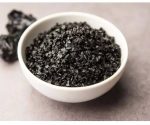Smart Students Habits: These 7 mini habits build smarter students (and it is backed by Neuroscience!) |

Often we equate smartness with studying longer, being more hard working, and getting good grades. However, inculcating smartness in children goes much more beyond toiling day and night.Neuroscience says that sometimes simple, everyday habits can make your child smart and the brain more focused, thus automatically translating into intelligence. Here are 7 such ‘mini’ habits…SleepSleep is one of the most important habits for a smart brain. When students sleep well, their brains process and store what they learned during the day. Sleep helps clear out toxins and strengthens connections between brain cells. Neuroscience says that without enough sleep, memory and focus suffer. So, aim for 7-9 hours of good sleep every night to help the brain work at its best.

Enough breaks
Studying for hours without a break can tire the brain and reduce learning. Neuroscience suggests taking short breaks every 25-30 minutes, a method called the Pomodoro Technique. These breaks help the brain rest and recharge, making it easier to focus when you return. Even a 5-minute walk or stretching can improve attention and memory.
Practice Mindfulness
Mindfulness means paying full attention to the present moment without getting distracted. (yes, even for children) Deep breathing exercises calm the brain and reduce stress. Neuroscience shows that practicing mindfulness regularly can increase the size of brain areas related to memory and decision-making. Students who practice mindfulness find it easier to concentrate and handle tough tasks.MovePhysical exercise is not just good for the body but also for the brain. When students move, their brains release chemicals that help new brain cells grow and improve learning. Even simple activities like walking, dancing, or playing sports can boost brain power. Neuroscience tells us that regular exercise improves memory, creativity, and problem-solving skills.
Brain healthy foods
What students eat affects how their brains work. Foods rich in omega-3 fatty acids (like fish and walnuts), antioxidants (found in fruits and vegetables), and whole grains give the brain the fuel it needs. Neuroscience shows that these nutrients help protect brain cells and improve thinking skills. Avoid too much sugar and junk food, which can make the brain slow and cloudy.

Write it down
Writing notes by hand helps the brain learn better than typing on a computer. Neuroscience explains that handwriting activates different parts of the brain involved in thinking and memory. When students write by hand, they understand and remember information more deeply. So, take out that notebook!
Teach others
One of the best ways to make information stick is to teach it to someone else. Neuroscience shows that explaining ideas strengthens the brain’s connections and helps students understand topics more clearly. Teaching can be as simple as sharing what you learned with a friend or family member. This habit not only helps others but also makes you smarter in the long-run.
















